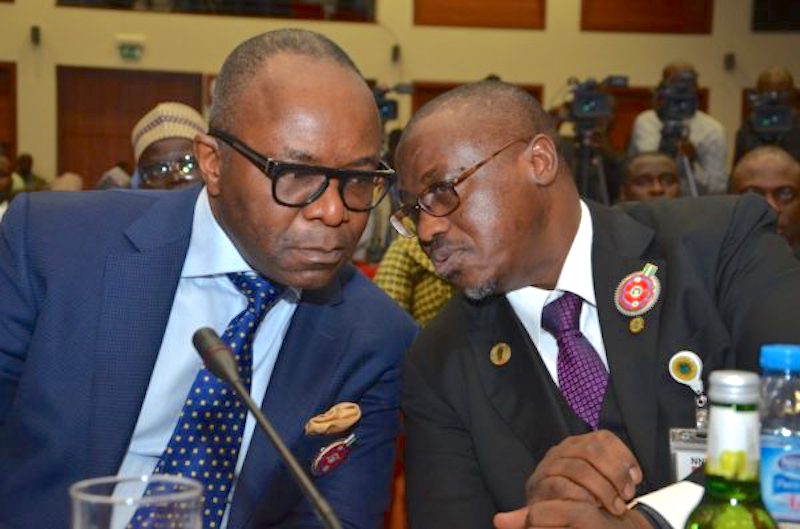The rationale behind the need for two regulatory commissions instead of the proposed one in the Petroleum Industry Governance Bill (PIGB) is not far-fetched for the Depot and Petroleum Products Marketers Association of Nigeria (DAPPMAN), Olufemi Adewole, its executive secretary, , told business a.m. in an interview.
Last week the lawmakers passed the Petroleum Industry Governance Bill and it is now awaiting the signature of the president to become an Act.
It is not clear how the complain that DAPPMAN is now making will play out, but some analysts say they have a point because both the upstream and downstream are different and should not be subjected to a single regulator. For the Bill to have even got to this stage is an 18-year miracle, they say.
DAPPMAN’s Adewole told business a.m. that it amounts to lumping to have both sub-sectors have a single regulator and that they are opposed to this.
Ibe Kachikwu, minister of state for petroleum resources, had explained in the past that the PIGB specifies one regulator to be called Nigerian Petroleum Regulatory Commission and will be saddled with the responsibility of handling all oil and gas regulations in the country.

However, DAPPMAN, MOMAN and OPS are all against this and are clamouring for two different regulatory commissions for upstream and downstream sub-sectors. The reason for this demand by the associations, according to them, is the need for equal attention on two most important sub-sectors of the industry.
According to Adewole, adequate and effective attention will not be given to the downstream if the downstream and upstream sub-sectors are jointly regulated by one commission. “The psyche and the discussion mainly focus on upstream and we want downstream to be visible,” he said.
Most of government’s attention has always been on the upstream sub-sector because it is the main source of revenue for the country and downstream sector might become more inconspicuous if the lone regulator model is not changed.
In a quest to drive series of reforms in the petroleum industry, the Petroleum Industry Bill (PIB) was introduced 18 years ago.
The bill prescribed changes long advocated for, including transparency and accountability in the sector especially in upstream; strengthening and streamlining of institutions and their functions; fiscal changes that would ensure higher revenue for the government in both upstream and downstream; and modification of regulatory systems to ensure that policies are duly adhered to.
However, this current administration broke the cumbersome bill into four parts to allow progress after almost 12 years of bickering over it.
The four separate bills are Petroleum Industry Governance Bill (PIGB), Petroleum Host Community Bill, Petroleum Industry Fiscal Bill and lastly, Petroleum Industry Administration Bill.
The PIGB is the only part of the entire bill that has been passed by both the Senate and House of Representatives; and expectations are really high on its delivery after the eventual presidential assent.
Kachikwu had earlier said that the PIGB would “drive the proposed transformation programme of the oil and gas industry to reform the industry processes, create efficient structures, adopt new business practices and outline clearer rules of operation to move the economy forward.”
He also said that in terms of how the bill would drive transparency, it was mainly in the upstream subsector where allocation of oil blocs was done unclearly. While for downstream, there will be no such issues as long as the sub-sector is deregulated.
“As an oil marketer, once you bring in your products, you only have to include the approved margins, so this is open and transparent enough,” he said.
Yet, it is just one part of four, and other stakeholders are skeptical and waiting for the passage of the remaining bills to be able to gauge the effects as the PIGB alone cannot solve the problems plaguing the industry.
“This bill is just one part of the Petroleum Industry Bill (PIB), so one part of it is not going to solve all the problems, let’s see all the other parts passed first,” Adewole said.
The association also expressed relief at the passage of the bill saying that “we are not unhappy that they have concluded work on it, but the way it was passed is what we have problems with.”
According to him, the proposed one regulator is going against the intent of the PIB, which was to unbundle the nation’s petroleum corporation, Nigerian National Petroleum Corporation (NNPC). The establishment of a single regulator would make the regulator so big and monotonous and this would defeat the entire purpose of the bill.
He also outlined how the separate regulators for both upstream and downstream would make the industry more attractive for investors as investors wanting to invest in downstream know who they are dealing with and it makes the sector more transparent. The association is hoping the president wouldn’t sign off on the bill unless the change is effected or if it is passed, an amendment would follow as soon as possible.
It also plans to take more interest in the other three bills unlike the PIGB to ensure that its views are not sidelined.







